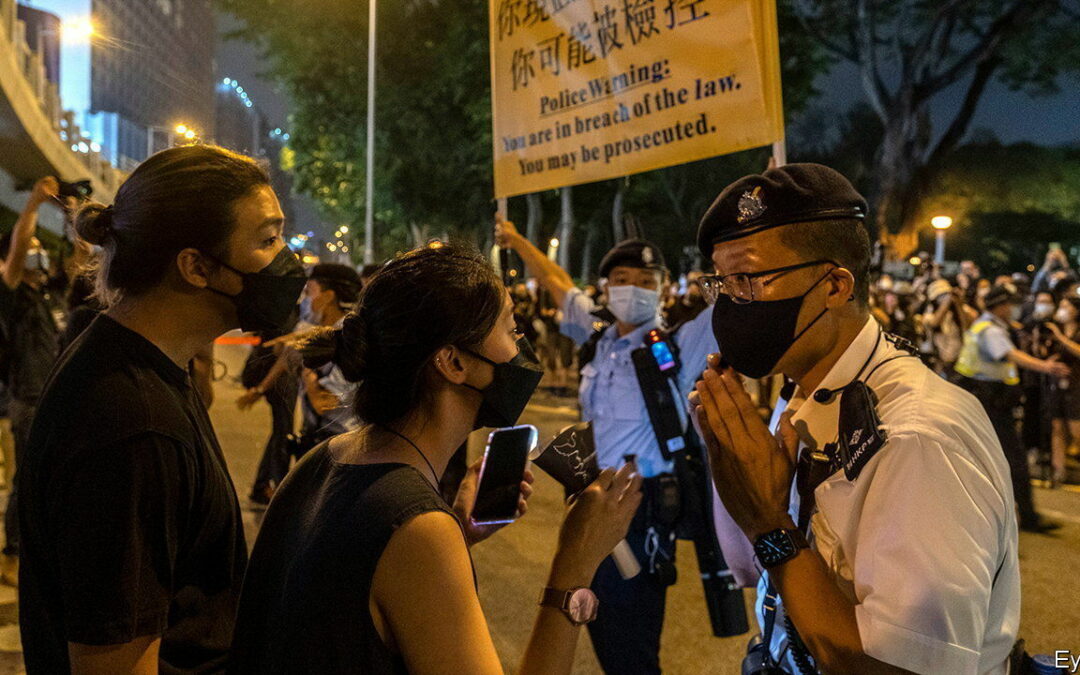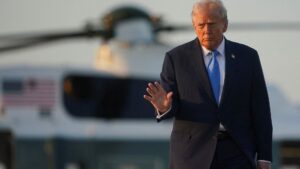IN “1984”, GEORGE ORWELL’S dystopian novel, the ruling party controls the past by feeding reports of inconvenient historical events into a “memory hole”, replacing them with its preferred version. China’s Communist Party has long taken that approach—no more so than when it comes to the massacre of pro-democracy demonstrators that occurred around Tiananmen Square in the early morning of June 4th 1989. For three decades China’s rulers have stuffed their own memory hole with articles, social-media posts and even references to the number 64 (a cryptic nod to June 4th). Many Chinese now have little idea of what happened on that bloody night in Beijing.
Except, that is, for those in Hong Kong. For years the territory was one of the only places in China in which June 4th remembrance ceremonies and open discussion of the events were permitted. Tens of thousands, sometimes hundreds of thousands, attended an annual vigil; many more lit candles in their windows or dressed in black. But in 2020 Hong Kong’s government banned the gathering. First it blamed the pandemic. Later it threatened to use a sweeping new national-security law imposed on the city by the mainland in July 2020, as well as pre-existing legislation. Since then the ban has remained in place and the Hong Kong government’s efforts to control remembrance of Tiananmen have grown.
Officials insist that the freedoms of expression and assembly enshrined in Hong Kong’s Basic Law, the mini-constitution enacted after Britain handed back the territory to China in 1997, remain unmolested. But the national-security law, which gives the authorities broad powers to clamp down on anything they deem seditious, renders such statements close to meaningless.
The legislation is so vague that no one knows where its lines are drawn. In March the organisers of the Tiananmen vigil were jailed, even though the last such event had been held before the national-security law was enacted. (They were charged with failing to hand over documents related to a suspicion that they were “foreign agents”.) Chris Tang, Hong Kong’s security chief, is evasive on whether wearing black or lighting candles on June 4th would be considered seditious. Authorities have hauled down statues commemorating Tiananmen and closed a museum dedicated to the massacre.
Earlier this year the government oversaw the removal from public libraries of books that mention the massacre. Accused of censorship, John Lee, Hong Kong’s chief executive, insisted that the works would still be available in private bookshops. But bookshops, too, have been purging their shelves of literature that might upset the authorities. With the legislation ill-defined, and the punishment for transgression so harsh, they have inevitably erred on the side of caution. Encouraging self-censorship is indeed the point of making the offence so vague.
For all that, Hong Kong is not yet quite the same as the mainland. Authorities have all but stamped out critical local media by closing down newsrooms and locking up journalists. But the international press is freely available to locals. Government officials, including Mr Lee, still appear before the media to answer (occasionally) difficult questions. Nor is there all-encompassing control of the internet equivalent to China’s Great Firewall (although some sites, such as that of Hong Kong Watch, a British NGO, have been blocked). For now the flame of Tiananmen will be more difficult to snuff out in Hong Kong than in Beijing—whether or not those who remember June 4th are allowed to light a candle to its victims. ■









